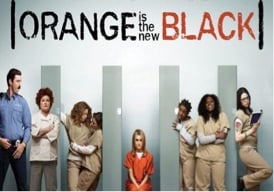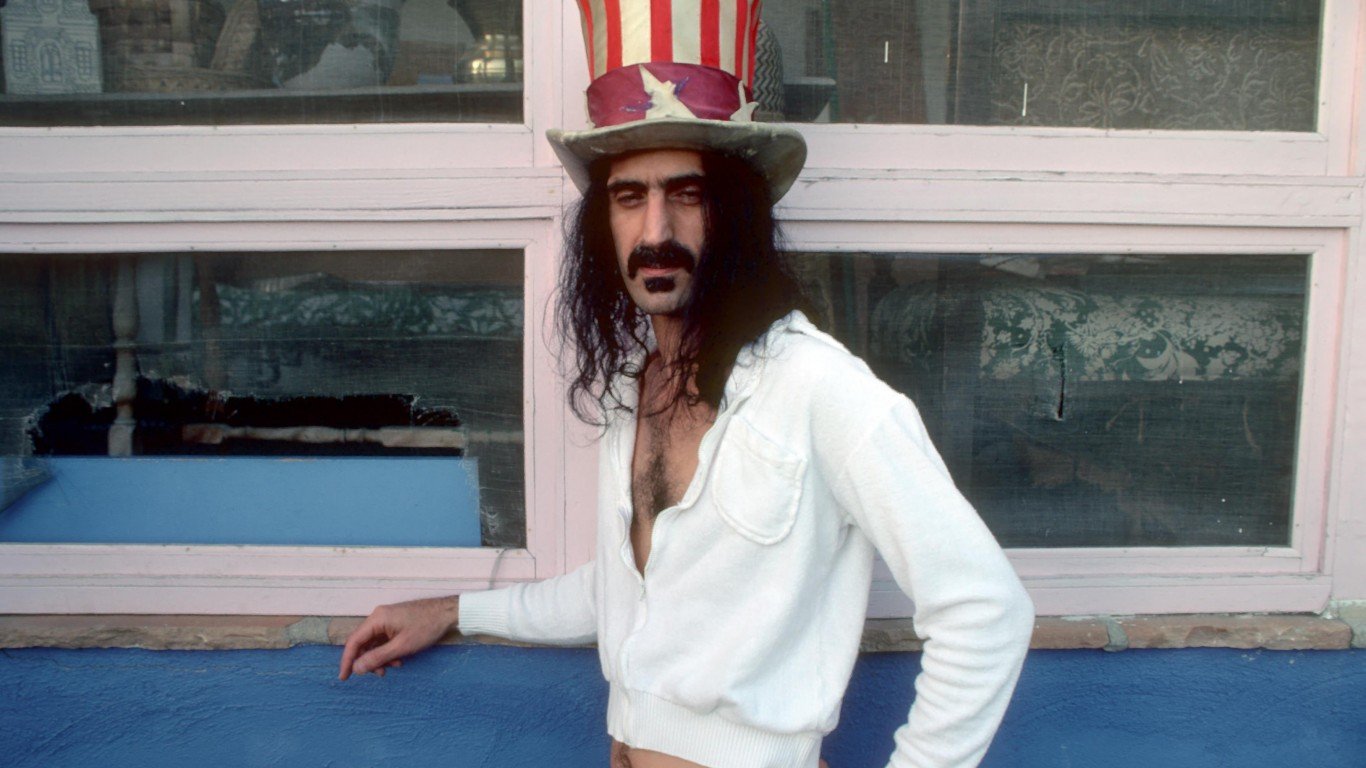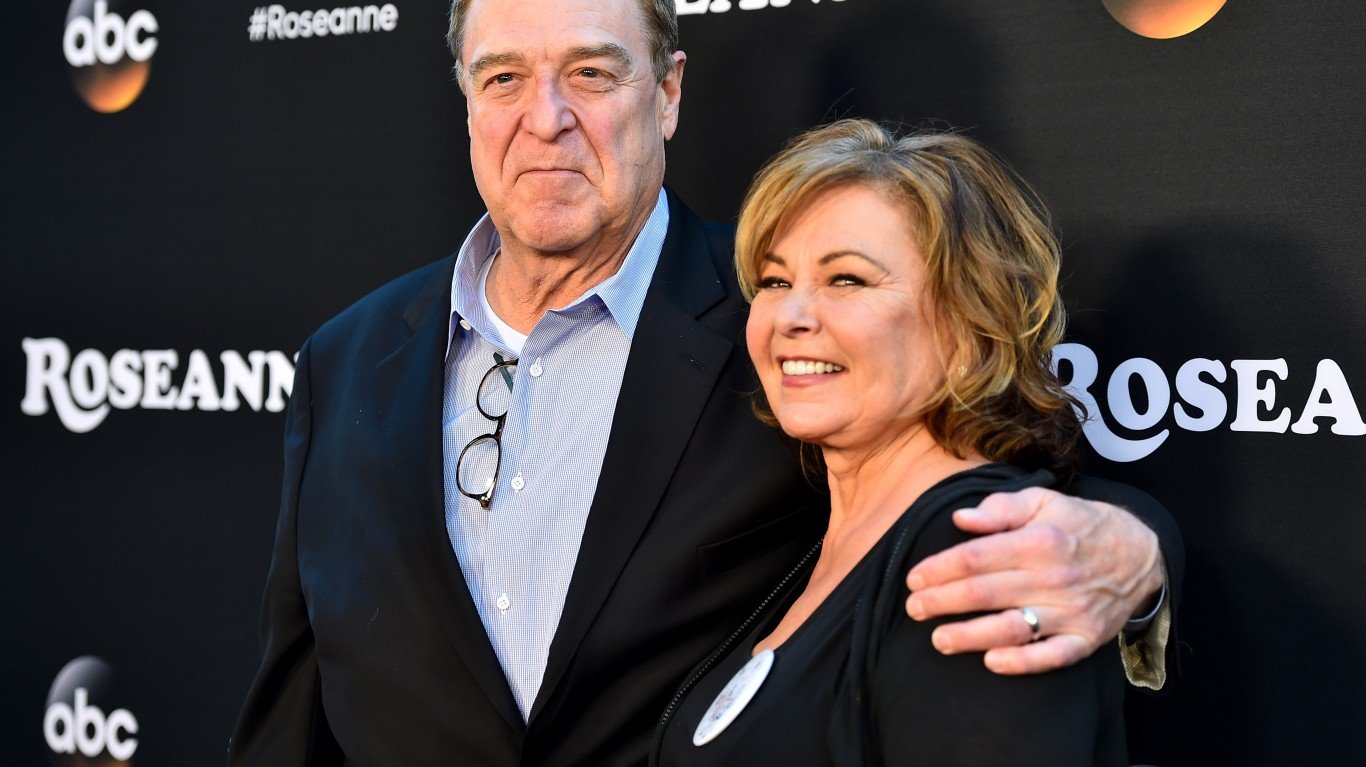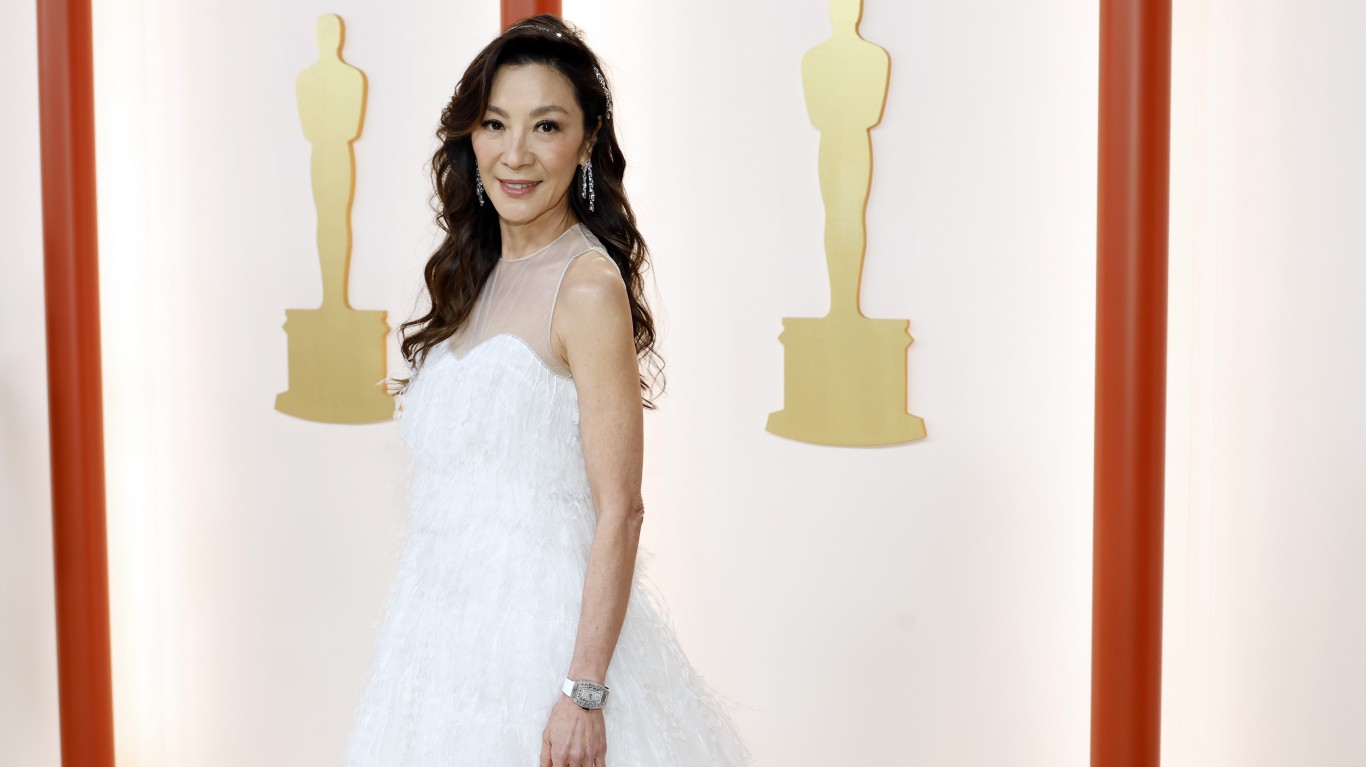In music, one of the worst things an artist can be is a one-hit wonder. Sure, they make a lot of money in a short period of time, but they also spend a ton of that money trying to keep up appearances. Netflix (NASDAQ: NFLX) had to contend with questions about its own possible “one-hit wonder” status following the well-received debut of flagship series House of Cards, but then came Orange Is the New Black, which put those fears to rest…likely for good. Source: Netflix
Source: Netflix
Binging on ‘Black’
This weekend, numerous TV fans will spend a large chunk of their time binging on the second season of Orange, which began streaming Friday. For Netflix, that’s both a huge win and a huge relief. The series about life in a minimum-security women’s prison wasn’t exactly an easy sell on paper to audiences, but it had one key thing working in its favor: Netflix’s streaming platform.
Having a full season available all at once via streaming allows certain liberties that the show couldn’t have taken on regular TV, and that goes beyond cable trademarks like sex and violence. Netflix helped create and foster the “binge-watching” movement, which, for a series like Orange, is vitally important to assist character development. Based on the memoir of Piper Kerman, the series is fronted by rising star Taylor Schilling, but is truly an ensemble work.
Each character is fleshed out and nobody is there as a throwaway. Each episode gives viewers a little more backstory into the women’s pasts and how they ended up alongside Piper in the (fictional) Litchfield Federal Penitentiary. It’s not a fast journey (by design) and by committing to watching multiple episodes at the same time, you don’t feel like it needs to be.
ALSO READ: America’s Most Profitable Companies
The dramedy is a shock to the system at first, but as you go through the show’s first episodes you gradually begin to see where series creator Jenji Kohan is going and you want to continue on the ride.
‘Orange,’ ‘Black’ and Gold?
Orange means a lot to Netflix, beyond fitting well into the network’s successful business model. It’s also quickly proving to be a potential awards magnet. Debuting last summer, the series missed the cutoff for last year’s Emmys, which means the show and its cast has had almost a full calendar year to seep into the public conscious.
Again, while Schilling is the lead, it’s her supporting cast that has really stolen the show. Recently, both the Critics’ Choice Awards and Television Critics Association (TCA) recognized the series and in some cases members of its large cast. The question now becomes: Will that translate to the Emmys, where voters are notoriously stuck in their ways?
Last year, many wondered if the members of the Academy of Television Arts & Sciences would be forward-thinking enough to nominate Cards, because it was a streaming show and part of a new medium. That skepticism dissipated as the show was nominated for nine awards and won three, including one for director David Fincher, who helmed the pilot. Fincher became the first person, and Cards the first show, to win a prestigious Emmy for a streaming program.
Orange could add to that list this year, which would be a huge boon to Netflix and potentially its investors. Executives made a risky but smart move in submitting the series for this year’s race as a comedy instead of targeting the drama category. Like Ally McBeal, Glee and a few others that have come before, Orange is (generally) an hour-long format and dances on the line of comedy and drama. Since the Emmys don’t have a “dramedy” category, it gives executives a choice, which has produced some odd matchups in the past.
This year, Orange isn’t the only one bucking the trend as Showtime’s doing something similar with Shameless as is HBO with True Detective. In the case of Detective, HBO (a subsidiary of Time Warner (NYSE: TWX)) is submitting the program as a drama rather than a mini-series, which, unlike the decisions on Orange and Shameless, has been met with controversy. Again, it’s a fine line when the rules aren’t clearly defined and that’s one of the side effects Orange was lucky enough to avoid.
Ratings
One of the unique things about Netflix is it doesn’t reveal ratings. It’s really remarkable if you think about it, because we have no idea have many people watched the first two season of House of Cards or the previous season of Orange. That wouldn’t fly on broadcast, cable or premium TV, yet on streaming it’s a brand-new ballgame with a brand-new set of rules that the network is helping to set.
With its series, Netflix crafts its own destiny. It willed Cards and Orange into hits by promoting them as such. Critics loved the shows, viewers responded well to the shows and they began to win awards, so they must be hits, right? Without viewer numbers to tell the tale, rivals, critics, and investors are left guessing about how well the series are actually doing, though the company does give overall subscriber numbers and the popularity of original programming could bring in members, while a flop might hurt numbers.
Check out this fascinating article from All Things D.com (now re/Code), which came out last year when season one of Orange debuted, and you can see how people are trying guesstimate info. The most interesting takeaway is that Orange Is the New Black reportedly garnered more viewers and hours watched within its first week than other Netflix original series House of Cards and Arrested Development.
But the problem with being so secretive is that people presume things and, as the saying goes, “perception is reality,” which for now is benefitting both Orange and its network, but can it hold over time? We’ll see.
Sponsored: Attention Savvy Investors: Speak to 3 Financial Experts – FREE
Ever wanted an extra set of eyes on an investment you’re considering? Now you can speak with up to 3 financial experts in your area for FREE. By simply
clicking here you can begin to match with financial professionals who can help guide you through the financial decisions you’re making. And the best part? The first conversation with them is free.
Click here to match with up to 3 financial pros who would be excited to help you make financial decisions.
Thank you for reading! Have some feedback for us?
Contact the 24/7 Wall St. editorial team.



